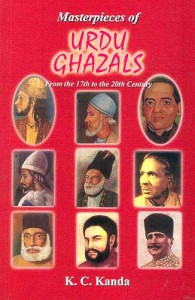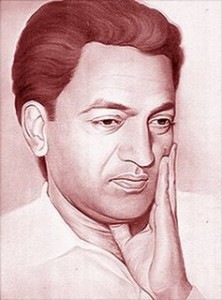The sentiment of heroism in poetry has always been a profound and stirring theme, resonating through the ages. This literary trope, often steeped in grandeur and nobility, captures the essence of the human spirit in its most valiant form. Heroic poetry, from the ancient epics of Homer to the chivalric tales of medieval times, encapsulates the ideals of courage, sacrifice, and honor. These verses not only recount the physical deeds of their protagonists but also delve into the moral and ethical dilemmas faced by these larger-than-life figures. The lyricism in such poetry is not merely about glorifying battles or victories; it’s an exploration of what it means to be truly heroic – which often involves inner battles of virtue, selflessness, and the pursuit of a greater good. The enduring appeal of heroic poetry lies in its ability to inspire, uplift, and remind us of the potential for greatness that lies within each of us.
The theme of heroism in poetry has long captured the imagination of the young, myself included, especially in the pre-modern era. Recently, I’ve found myself nostalgically recalling one of the poems from my childhood that has remained etched in my memory. I took a journey back in time and revisited “Jhansi Ki Rani,” or the Queen of Jhansi. This poem stands out as one of my earliest and most vivid recollections of the poetry I read during those formative years.
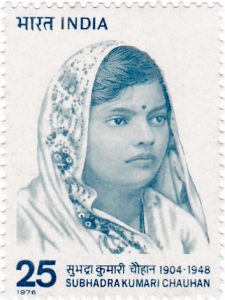 It is beautifully penned by Subhadra Kumari Chauhan, who was born in 1904, in the Nihalpur village of Allahabad. An eminent Indian poet, Chauhan holds a distinguished place in Hindi literature. She is not only remembered for this poem but also her impassioned nationalism and poignant portrayal of women’s struggles. She was an active participant in India’s freedom movement.
It is beautifully penned by Subhadra Kumari Chauhan, who was born in 1904, in the Nihalpur village of Allahabad. An eminent Indian poet, Chauhan holds a distinguished place in Hindi literature. She is not only remembered for this poem but also her impassioned nationalism and poignant portrayal of women’s struggles. She was an active participant in India’s freedom movement.
“Jhansi Ki Rani,” an evocative and rousing ballad, vividly brings to life the bravery of Rani Lakshmibai of Jhansi, a symbol of resistance against British colonialism. Chauhan’s poetry, marked by its directness and lyrical quality, often drew from her personal experiences and the sociopolitical milieu of her times. Her work resonates with the themes of patriotism, valor, and the challenges faced by women, making her an inspirational figure in Indian poetry and a voice of empowerment for many generations.
Enjoy the poem below in all its glory captured in Devanagari script, with a Romanized version to serve as pronunciation guide, and the translation.
झाँसी की रानी (Jhansi Ki Rani) or, The Queen of Jhansi
1
सिंहासन हिल उठे राजवंषों ने भृकुटी तनी थी,
(Sinhasan hil uthey raajvanshon ney bhrukuti tani thi,)
The throne got shook, and the tension erupted among the Raajvanshs, the royal heirs of the throne,
बूढ़े भारत में आई फिर से नयी जवानी थी,
(budhey Bharat mein aayee phir se nayi jawani thi,)
In aged India, a new wave of youth was spreading,
गुमी हुई आज़ादी की कीमत सबने पहचानी थी,
(gumee huee azadi ki keemat sabney pehchani thi,)
All the inhabitants of India had realized the worth of their lost freedom,
दूर फिरंगी को करने की सब ने मन में ठनी थी.
(door phirangi ko karney ki sab ney man mein thani thi.)
All of them had decided to get rid of the British rule,
चमक उठी सन सत्तावन में, यह तलवार पुरानी थी,
(Chamak uthi san sattavan mein, yeh talwar purani thi,)
The old swords started glittering again like new ones in the form of the freedom movement in 1857.
बुंदेले हरबोलों के मुँह हमने सुनी कहानी थी,
(Bundeley Harbolon key munh hamney suni kahani thi,)
From the mouths of the Bandelas and the Harbolas (Religious singers of Bandelkhand), we heard the tale,
खूब लड़ी मर्दानी वो तो झाँसी वाली रानी थी.
(Khoob ladi mardani woh to Jhansi wali Rani thi.)
Of the courage of the Queen of Jhansi relating how gallantly she fought like a man against the British intruders: such was the Queen of Jhansi.
2
कानपुर के नाना की मुह बोली बहन छब्बिली थी,
(Kanpur key Nana ki muhn boli bahen chhaveeli thi,)
She was as dear to the Nana (Nana Ghunghupant ) of Kanpur as her real sister,
लक्ष्मीबाई नाम, पिता की वो संतान अकेली थी,
(Lakshmibai naam, pita ki woh santaan akeli thi,)
Her name was Laxmibai and she was the only daughter of her parents,
नाना के सॅंग पढ़ती थी वो नाना के सॅंग खेली थी
(Nana key sangh padhti thi woh Nana key sangh kheli thi)
She had been with Nana from her early childhood, since she was a school student.
बरछी, ढाल, कृपाण, कटारी, उसकी यही सहेली थी.
(barchhi, dhal, kripan, katari, uski yehi saheli thi.)
Spear, knife, sword, axe (all different types of weapons used in her time) were her companions all the time.
वीर शिवाजी की गाथाएँ उसकी याद ज़बानी थी,
(Veer Shivaji ki gaathaayen uski yaad zabani thi,)
She had learned by heart the valorous stories of shivaji (a renowned king of Maharashtra).
बुंदेले हरबोलों के मुँह हमने सुनी कहानी थी,
(Bundeley Harbolon key munh hamney suni kahani thi,)
From the mouths of the Bandelas and the Harbolas (Religious singers of Bandelkhand), we heard the tale,
खूब लड़ी मर्दानी वो तो झाँसी वाली रानी थी.
(Khoob ladi mardani woh to Jhansi wali Rani thi.)
Of the courage of the Queen of Jhansi relating how gallantly she fought like a man against the British intruders: such was the Queen of Jhansi.
3
लक्ष्मी थी या दुर्गा थी वो स्वयं वीरता की अवतार,
(Lakshmi thi ya Durga thi woh swayan veerta ki avatar,)
No one could guess whether she was Laxmi or Durga devi ( Durga Goddess , also called Bhavani ) or reincarnation of Devi durga,
देख मराठे पुलकित होते उसकी तलवारों के वार,
(dekh Marathey pulkit hotey uski talwaron key vaar,)
Her expertise in using a sword made the people of Marathward (Pulkit) wonder,
नकली युध-व्यूह की रचना और खेलना खूब शिकार,
(nakli yudh-vyuh ki rachna aur khelna khub shikar,)
They learned the war strategy of how to attack the prey,
सैन्य घेरना, दुर्ग तोड़ना यह थे उसके प्रिय खिलवाड़.
(sainya gherna, durg todna yeh they uskey preeya khilwad.)
To ambush her prey and to break the vanity were among her favorite supports,
महाराष्ट्रा-कुल-देवी उसकी भी आराध्या भवानी थी,
(Maharashtra-kul-devi uski bhi aaradhya Bhavani thi,)
Maharashtra-kul-Devi (The goddess of the Maharashtra ) was as dear to her as Bhavani (Durga Devi )
बुंदेले हरबोलों के मुँह हमने सुनी कहानी थी,
(Bundeley Harbolon key munh hamney suni kahani thi,)
From the mouths of the Bandelas and the Harbolas (Religious singers of Bandelkhand), we heard the tale,
खूब लड़ी मर्दानी वो तो झाँसी वाली रानी थी.
(Khoob ladi mardani woh to Jhansi wali Rani thi.)
Of the courage of the Queen of Jhansi relating how gallantly she fought like a man against the British intruders: such was the Queen of Jhansi.
4
हुई वीरता की वैभव के साथ सगाई झाँसी में,
(Huee veerta ki vaibhav key saath sagai Jhansi mein,)
With valor in a grand festival, she got married in Jhansi,
ब्याह हुआ बन आई रानी लक्ष्मी बाई झाँसी में,
(byah hua ban aayee Rani Lakshmi bai Jhansi mein,)
After her marriage, Laxmibai came to Jhansi as a queen with shower of joy,
राजमहल में बाजी बधाई खुशियाँ छायी झाँसी में,
(rajmahal mein baji badhai khushiyan chhaee Jhansi mein,)
A grand celebration took place in the royal palace of Jhansi. That was a good luck for Bandelos that she came to Jhansi,
सुघत बुंडेलों की विरूदावली-सी वो आई झाँसी में.
(sughat Bundelon ki viroodaavalee-si woh aayee Jhansi mein.)
That was as Chitra met with Arjun or Shiv had got his beloved Bhavani (Durga).
चित्रा ने अर्जुन को पाया, शिव से मिली भवानी थी,
(Chitra ney Arjun ko paya, Shiv sey mili Bhavani thi,)
From the mouths of the Bandelas and the Harbolas (Religious singers of Bandelkhand), we heard the tale of the courage of the Queen of Jhansi relating how gallantly she fought like a man against the British intruders: such was the Queen of Jhansi.
बुंदेले हरबोलों के मुँह हमने सुनी कहानी थी,
(Bundeley Harbolon key munh hamney suni kahani thi,)
From the mouths of the Bandelas and the Harbolas (Religious singers of Bandelkhand), we heard the tale,
खूब लड़ी मर्दानी वो तो झाँसी वाली रानी थी.
(Khoob ladi mardani woh to Jhansi wali Rani thi.)
Of the courage of the Queen of Jhansi relating how gallantly she fought like a man against the British intruders: such was the Queen of Jhansi.
5
उदित हुआ सौभाग्या, मुदित महलों में उजियली च्छाई,
(Udit hua saubhagya, mudit mahalon mein ujiyali chhayee,)
She came as a good luck to the royal palace of Jhansi and for a log time the palace remained decorated with lighting candles in celebration.
किंतु कालगती चुपके-चुपके काली घटा घेर लाई,
(kintu kaalgati chupkey-chupkey kali ghata gher laayee,)
But as days passed the dark clouds of misfortune covered the royal palace.
तीर चलाने वाले कर में उसे चूड़ियाँ कब भाई,
(teer chalaaney vaaley kar mein usey choodiyan kab bhaayee,)
She stopped wearing bangles for that was the time for a battle.
रानी विधवा हुई है, विधि को भी नहीं दया आई.
(Rani vidhva huee hai, vidhi ko bhi nahin dayaa aayee.)
The queen got widowed and her fate was very unkind to her.
निसंतान मारे राजाजी, रानी शोक-सामानी थी,
(Nisantan marey Rajaji, Rani shok-samani thi,)
The royal king had no children when he died and the queen was grief stricken.
बुंदेले हरबोलों के मुँह हमने सुनी कहानी थी,
(Bundeley Harbolon key munh hamney suni kahani thi,)
From the mouths of the Bandelas and the Harbolas (Religious singers of Bandelkhand), we heard the tale,
खूब लड़ी मर्दानी वो तो झाँसी वाली रानी थी.
(Khoob ladi mardani woh to Jhansi wali Rani thi.)
Of the courage of the Queen of Jhansi relating how gallantly she fought like a man against the British intruders: such was the Queen of Jhansi.
6
बुझा दीप झाँसी का तब डॅल्लूसियी मान में हरसाया,
(Bujha deep Jhansi ka tab Dalhousie man mein harshaaya,)
So the candle of the royal castle blew off and Dalhousie (a British governor) became very happy in his heart about the situation (that the royal palace had no king or someone strong to defend the throne).
ऱाज्य हड़प करने का यह उसने अच्छा अवसर पाया,
(Raajya hadap karney ka yeh usney achhaa avsar paaya,)
He thought that the time was right to usurp the kingdom.
फ़ौरन फौज भेज दुर्ग पर अपना झंडा फेहराया,
(fauran fauj bhej durg par apna jhandaa phehraya,)
He sent his soldiers to Citadel and raised the British flag on the royal palace.
लावारिस का वारिस बनकर ब्रिटिश राज झाँसी आया.
(lawaris ka waris bankar British Raj Jhansi aaya.)
The British rule came to Jhansi as the guardian of an orphan.
अश्रुपुर्णा रानी ने देखा झाँसी हुई वीरानी थी,
(Ashrupurna Rani ney dekha Jhansi huee birani thi,)
The Rani saw everything with tears in her eyes that how Jhansi got deserted.
बुंदेले हरबोलों के मुँह हमने सुनी कहानी थी,
(Bundeley Harbolon key munh hamney suni kahani thi,)
From the mouths of the Bandelas and the Harbolas (Religious singers of Bandelkhand), we heard the tale,
खूब लड़ी मर्दानी वो तो झाँसी वाली रानी थी.
(Khoob ladi mardani woh to Jhansi wali Rani thi.)
Of the courage of the Queen of Jhansi relating how gallantly she fought like a man against the British intruders: such was the Queen of Jhansi.
7
अनुनय विनय नहीं सुनती है, विकट शासकों की मॅयैया,
(Anunay vinay nahin sunti hai, vikat shaasakonki maaya,)
Strong (and Cruel) kings do not care about the cajoling.
व्यापारी बन दया चाहता था जब वा भारत आया,
(vyapari ban daya chhahta tha jab wah Bharat aaya,)
They (The British Rulers) came to India in the disguise of poor merchants.
डल्हौसि ने पैर पसारे, अब तो पलट गयी काया
(Dalhousie ney pair pasaarey, ab to palat gayee kaaya)
The British governor (Dalhousi) then extended his influence in India and so the fate of India turned over.
राजाओं नव्वाबों को भी उसने पैरों ठुकराया.
(Rajaon Nawwabon ko bhi usney pairon thukraaya.)
He insulted even the feudal and heads of state of India.
रानी दासी बनी, बनी यह दासी अब महारानी थी,
(Rani daasi bani, bani yeh daasi ab Maharani thi,)
The queen took the gesture of a maidservant; the maid was the real queen.
बुंदेले हरबोलों के मुँह हमने सुनी कहानी थी,
(Bundeley Harbolon key munh hamney suni kahani thi,)
From the mouths of the Bandelas and the Harbolas (Religious singers of Bandelkhand), we heard the tale,
खूब लड़ी मर्दानी वो तो झाँसी वाली रानी थी.
(Khoob ladi mardani woh to Jhansi wali Rani thi.)
Of the courage of the Queen of Jhansi relating how gallantly she fought like a man against the British intruders: such was the Queen of Jhansi.
8
छीनी राजधानी दिल्ली की, लखनऊ छीना बातों-बात,
(Chheenee rajdhani Dilli ki, Lucknow chheena baaton-baat,)
First of all Indian rulers lost the capital of India, Delhi and subsequently they lost the control of Lucknow.
क़ैद पेशवा था बिठुर में, हुआ नागपुर का भी घाट,
(Qaid Peshwa tha Bithur mein, hua Nagpur ka bhi ghaat,)
Peshwa was imprisoned in Bithur and then the Nagpur tragedy occurred.
ऊदैपुर, तंजोर, सतारा, कर्नाटक की कौन बिसात?
(Udaipur, Tanjore, Satara, Karnatak ki kaun bisaat?)
After the fall of Nagpur, it was not a big task for the intruders to take the control of Udaipur, Tanjore satara and Karnatak.
जबकि सिंध, पंजाब ब्रह्म पर अभी हुआ था वज्र-निपात.
(jabki Sindh, Punjab Brahm par abhi hua that vajra-nipaat.)
They already had the control of Sindh, Punjab and Assam.
बंगाले, मद्रास आदि की भी तो वही कहानी थी,
(Bengaaley, Madras aadi ki bhi to vahi kahani thi,)
The tale of fall of Bengal, Madras and many other states was also the same.
बुंदेले हरबोलों के मुँह हमने सुनी कहानी थी,
(Bundeley Harbolon key munh hamney suni kahani thi,)
From the mouths of the Bandelas and the Harbolas (Religious singers of Bandelkhand), we heard the tale,
खूब लड़ी मर्दानी वो तो झाँसी वाली रानी थी.
(Khoob ladi mardani woh to Jhansi wali Rani thi.)
Of the courage of the Queen of Jhansi relating how gallantly she fought like a man against the British intruders: such was the Queen of Jhansi.
9
रानी रोई रनवासों में, बेगम गुम सी थी बेज़ार,
(Rani royee rinvason mein, Begum gum se thi bezaar,)
Rani(the queen) wept in her quarter for all that disaster. She was rather lost and was sick of the situation.
उनके गहने कपड़े बिकते थे कलकत्ते के बाज़ार,
(unkey gehney kapdey biktey they Calcutta key bazzar,)
Her ornaments and royal clothes were being sold in the markets of Calcutta.
सरे आम नीलाम छपते थे अँग्रेज़ों के अख़बार,
(sarey aam nilaam chhaptey they angrezon key akhbar,)
The advertisements for the sale of the royal stuff were being published in the daily newspapers of the British Government.
“नागपुर के ज़ेवर ले लो, लखनऊ के लो नौलख हार”.
(“Nagpur key zewar le lo, Lucknow key lo naulakh haar”.)
“Buy the ornaments of Nagpur, Buy the Naulakha locket of Lucknow” had been the highlights of such advertisements.
यों पर्दे की इज़्ज़त परदेसी के हाथ बीकानी थी
(Yon pardey ki izzat pardesi key hath bikani thi)
In this manner the honor of the royal ladies had to be sold to foreigners.
बुंदेले हरबोलों के मुँह हमने सुनी कहानी थी,
(Bundeley Harbolon key munh hamney suni kahani thi,)
From the mouths of the Bandelas and the Harbolas (Religious singers of Bandelkhand), we heard the tale,
खूब लड़ी मर्दानी वो तो झाँसी वाली रानी थी.
(Khoob ladi mardani woh to Jhansi wali Rani thi.)
Of the courage of the Queen of Jhansi relating how gallantly she fought like a man against the British intruders: such was the Queen of Jhansi.
10
कुटियों में भी विषम वेदना, महलों में आहत अपमान,
(Kutiya mein bhi visham vedna, mahalon mein aahat apmaan,)
The cottages of poor were full of grief and the royal houses were also full of insult (the royal ladies were maltreated and insulted by the British intruders whereas the poor folk were also in the clutches of the atrocities by the British rulers).
वीर सैनिकों के मान में था अपने पुरखों का अभिमान,
(veer sainikon key man mein tha apney purkhon ka abhmaan,)
Brave soldiers of India had in their mind the prestige of their ancestors.
नाना धूंधूपंत पेशवा जूटा रहा था सब सामान,
(Nana Ghunghupant Peshwa joota raha tha sab saamaan,)
The name of Ghunghupant and Nana, the titles of the great warriors and their weapons, they have lost all such treasure as well.
बहिन छबीली ने रण-चंडी का कर दिया प्रकट आहवान.
(bahen chhaveeli ney Ran-Chandi ka kar diya prakat aahvaan.)
The beloved sisters of Nana (queen of Jhansi- Rani) invited Nana to visit Ran-Chandi.
हुआ यज्ञा प्रारंभ उन्हे तो सोई ज्योति जगानी थी,
(Hua yagna prarambh unhey to soyee jyoti jagani thi,)
The ritual of the holy war of freedom started because they had to awake the divine spirit of the people of India, which had been sleeping so far.
बुंदेले हरबोलों के मुँह हमने सुनी कहानी थी,
(Bundeley Harbolon key munh hamney suni kahani thi,)
From the mouths of the Bandelas and the Harbolas (Religious singers of Bandelkhand), we heard the tale,
खूब लड़ी मर्दानी वो तो झाँसी वाली रानी थी.
(Khoob ladi mardani woh to Jhansi wali Rani thi.)
Of the courage of the Queen of Jhansi relating how gallantly she fought like a man against the British intruders: such was the Queen of Jhansi.
11
महलों ने दी आग, झोंपड़ी ने ज्वाला सुलगाई थी,
(Mahalon ney di aag, jhonpdi ney jwala sulgayee thi,)
The fire of revolt started from royal palace, which became hot like burning sun when reached to the houses of the poor or common folk.
यह स्वतंत्रता की चिंगारी अंतरतम से आई थी,
(yeh swatantrata ki chingari antratam sey aayee thi,)
This spark of freedom started from the inner soul of the people.
झाँसी चेती, दिल्ली चेती, लखनऊ लपटें छाई थी,
(Jhansi cheti, Dilli cheti, Lucknow laptey chhayi thi,)
It captured Jhansi first then spread in Delhi and also engulfed Lucknow.
मेरठ, कानपुर, पटना ने भारी धूम मचाई थी,
(Merat, Kanpur, Patna ney bhari dhoom machayi thi,)
The freedom struggle was also in full swing in Merat, Kanpur and Patna.
जबलपुर, कोल्हापुर, में भी कुछ हलचल उकसानी थी,
(Jabalpur, Kolhapur, mein bhi kuchh hulchul uksani thi,)
The people of Jabalpur, Kolhapur were also being inspired from others.
बुंदेले हरबोलों के मुँह हमने सुनी कहानी थी,
(Bundeley Harbolon key munh hamney suni kahani thi,)
From the mouths of the Bandelas and the Harbolas (Religious singers of Bandelkhand), we heard the tale,
खूब लड़ी मर्दानी वो तो झाँसी वाली रानी थी.
(Khoob ladi mardani woh to Jhansi wali Rani thi.)
Of the courage of the Queen of Jhansi relating how gallantly she fought like a man against the British intruders: such was the Queen of Jhansi.
12
इस स्वतंत्रता महायज्ञ में काई वीरवर आए काम,
(Is Swatantrata Mahayagna mein kayee veervar aaye kaam,)
In that great freedom struggle, many brave brothers lost their lives.
नाना धूंधूपंत, तांतिया, चतुर अज़ीमुल्ला सरनाम,
(Nana Ghunghupant, Tantya, chatur Azeemullah sarnam,)
Among them were Nana GhunGhupant, Tantya, great Azeemullah,
अहमदशाह मौलवी, ठाकुर कुंवर सिंह, सैनिक अभिराम,
(Ahmedshah Moulvi, Thakur Kunwar Singh, Sainik Abhiram,)
And many others like Ahmedshah Moulvi, Thakur Kunwar singh, Sainik Abhiram.
भारत के इतिहास गगन में अमर रहेंगे जिनके नाम.
(Bharat key itihaas gagan mein amar rahengey jinkey naam.)
Their names will always be shining in the heavens of the ancient history of India,
लेकिन आज जुर्म कहलाती उनकी जो क़ुर्बानी थी,
(Lekin aaj jurm kehlati unki jo Qurbani thi,)
but they were considered rebels at that time and their great sacrifice was considered a crime against the state of British India.
बुंदेले हरबोलों के मुँह हमने सुनी कहानी थी,
(Bundeley Harbolon key munh hamney suni kahani thi,)
From the mouths of the Bandelas and the Harbolas (Religious singers of Bandelkhand), we heard the tale,
खूब लड़ी मर्दानी वो तो झाँसी वाली रानी थी.
(Khoob ladi mardani woh to Jhansi wali Rani thi.)
Of the courage of the Queen of Jhansi relating how gallantly she fought like a man against the British intruders: such was the Queen of Jhansi.
13
इनकी गाथा छोड़, चले हम झाँसी के मैदानों में,
(Inki gaatha chhod, chaley hum Jhansi key maidanon mein,)
Well, leave the tale of the bravery of those great men and let us go to the battlefields of Jhansi,
जहाँ खड़ी है लक्ष्मीबाई मर्द बनी मर्दनों में,
(Jahan khadi hai Lakshmibai mard bani mardanon mein,)
Where Laxmibai is standing boldly like a man among the other brave men.
लेफ्टिनेंट वॉकर आ पहुँचा, आगे बड़ा जवानों में,
(Lieutenant Walker aa pohoncha, aagey bada jawanon mein,)
Lieutenant Walker reached there and proceeded further in the people’s army of the brave men,
रानी ने तलवार खींच ली, हुआ द्वंद्ध आसमानों में.
(Rani ney talwaar kheench li, hua dhandh asmanon mein.)
Rani drew her sword, the beating of the drums started in the heavens,
ज़ख़्मी होकर वॉकर भागा, उसे अजब हैरानी थी,
(Zakhmi hokar Walker bhaga, usey ajab hairani thi,)
Walker ran away from the battlefield as Rani defectively wounded him. He was astonished on the agility of Rani.
बुंदेले हरबोलों के मुँह हमने सुनी कहानी थी,
(Bundeley Harbolon key munh hamney suni kahani thi,)
From the mouths of the Bandelas and the Harbolas (Religious singers of Bandelkhand), we heard the tale,
खूब लड़ी मर्दानी वो तो झाँसी वाली रानी थी.
(Khoob ladi mardani woh to Jhansi wali Rani thi.)
Of the courage of the Queen of Jhansi relating how gallantly she fought like a man against the British intruders: such was the Queen of Jhansi.
14
रानी बढ़ी कालपी आई, कर सौ मील निरंतर पार,
(Rani badhi Kalpi aayee, kar sau meel nirantar paar,)
Rani preceded further and reached Kalpi after taking a hard journey of hundreds of miles.
घोड़ा थक कर गिरा भूमि पर, गया स्वर्ग तत्काल सिधार,
(ghoda thak kar gira bhoomi par, gaya swarg tatkaal sidhaar,)
The horse got exhausted and fell to the ground and the rider (Walker) also fell down immediately .
यमुना तट पर अँग्रेज़ों ने फिर खाई रानी से हार,
(Yamuna tat par angrezon ney phir khayee Rani sey haar,)
In the field of Yamuna again Rani was defeating the British.
विजयी रानी आगे चल दी, किया ग्वालियर पर अधिकार.
(vijayee Rani aagey chal di, kiya Gwalior par adhikar.)
The victorious Rani proceeded further and took the control of Gawalior.
अँग्रेज़ों के मित्र सिंधिया ने छोड़ी राजधानी थी,
(Angrezon key mitra Scindia ney chhodi rajdhani thee,)
The British thus left the Vsindia (capital of Gawalior) and their rule ended in Gawalior.
बुंदेले हरबोलों के मुँह हमने सुनी कहानी थी,
(Bundeley Harbolon key munh hamney suni kahani thi,)
From the mouths of the Bandelas and the Harbolas (Religious singers of Bandelkhand), we heard the tale,
खूब लड़ी मर्दानी वो तो झाँसी वाली रानी थी.
(Khoob ladi mardani woh to Jhansi wali Rani thi.)
Of the courage of the Queen of Jhansi relating how gallantly she fought like a man against the British intruders: such was the Queen of Jhansi.
15
विजय मिली, पर अँग्रेज़ों की फिर सेना घिर आई थी,
(Vijay mili, par Angrezon ki phir sena ghir aayee thi,)
Although the freedom fighters had won, the British army was again getting organized.
अबके जनरल स्मिथ सम्मुख था, उसने मुंहकी खाई थी,
(Abkey General Smith sammukh tha, usney munhki khayee thi,)
This time, general smith was in command but he was also being defeated by the brave freedom fighters – he had to be defeated.
काना और मंदरा सखियाँ रानी के संग आई थी,
(Kaana aur Mandra sakhiyan Rani key sangh aayee thi,)
Kaana and Mandra (the associates of Rani) were also accompanying her in the war zone.
यूद्ध क्षेत्र में ऊन दोनो ने भारी मार मचाई थी.
(Yudh kshetra mein un dono ney bhari maar machayi thi.)
In the battlefield they both were fighting furiously.
पर पीछे ह्यूरोज़ आ गया, हाय! घिरी अब रानी थी,
(par peechey Hughrose aa gaya, Hai! gheeri ab Rani thi,)
But a British commander, Hughrose came from the backside to help his soldiers – Alas! The British soldiers surrounded the Rani from all sides.
बुंदेले हरबोलों के मुँह हमने सुनी कहानी थी,
(Bundeley Harbolon key munh hamney suni kahani thi,)
From the mouths of the Bandelas and the Harbolas (Religious singers of Bandelkhand), we heard the tale,
खूब लड़ी मर्दानी वो तो झाँसी वाली रानी थी.
(Khoob ladi mardani woh to Jhansi wali Rani thi.)
Of the courage of the Queen of Jhansi relating how gallantly she fought like a man against the British intruders: such was the Queen of Jhansi.
16
तो भी रानी मार काट कर चलती बनी सैन्य के पार,
(To bhi Rani maar kaat kar chalti bani sainya key paar,)
Though Rani was deeply wounded, still she was fighting and had managed to get through the British army,
किंतु सामने नाला आया, था वो संकट विषम अपार,
(kintu saamney naala aaya, tha woh sankat visham apaar,)
But she got stuck because a sewerage canal was there on the other end and she was in deep trouble,
घोड़ा अड़ा, नया घोड़ा था, इतने में आ गये अवार,
(ghoda adaa, naya ghoda tha, itney mein aa gaye avaar,)
Her horse got stuck there – the horse was untrained, in the mean time, the British soldiers, riding on their horses reached there.
रानी एक, शत्रु बहुतेरे, होने लगे वार-पर-वार.
(Rani ek, shatru bahuterey, honey lagey vaar-par-var.)
Rani was all alone while enemies were numerous who were attacking her with their sword from all sides,
घायल होकर गिरी सिंहनी, उसे वीर गति पानी थी,
(Ghayal hokar giri Sinhni, isey veer gati paani thi,)
Rani, who was fighting like a lioness, succumbed to the wounds and fell down. She had to achieve a glorious death in war ( Martyrdom ).
बुंदेले हरबोलों के मुँह हमने सुनी कहानी थी,
(Bundeley Harbolon key munh hamney suni kahani thi,)
From the mouths of the Bandelas and the Harbolas (Religious singers of Bandelkhand), we heard the tale,
खूब लड़ी मर्दानी वो तो झाँसी वाली रानी थी.
(Khoob ladi mardani woh to Jhansi wali Rani thi.)
Of the courage of the Queen of Jhansi relating how gallantly she fought like a man against the British intruders: such was the Queen of Jhansi.
17
रानी गयी सिधार चिता अब उसकी दिव्य सवारी थी,
(Rani gayee sidhaar chita ab uski divya sawaari thi,)
Rani was martyred in the battlefield.Her departed soul was then riding a divine vehicle, moving towards heavens
मिला तेज से तेज, तेज की वो सच्ची अधिकारी थी,
(mila tej se tej, tej ki woh sachchi adhikaari thi,)
the Light of her divine soul met with the divine light in the heavens, she was the real heir of divinity,
अभी उम्र कुल तेईस की थी, मनुज नहीं अवतारी थी,
(abhi umr kul teis ki thi, manuj nahin avtaari thi,)
She was only thirty years of age. She was not a human; rather she was divine spirit (a holy being),
हमको जीवित करने आई बन स्वतंत्रता-नारी थी,
(humko jeevit karney aayee ban Swatantrata-naree thi,)
Who did come, in the gesture of a female freedom fighter, to give us a respectable life of light and freedom ,
दिखा गयी पथ, सीखा गयी हमको जो सीख सिखानी थी,
(dikha gayee path, sikha gayee humko jo seekh sikhani thi,)
She showed us the path of freedom, and taught us the lesson of courage, she taught us what we might have learned.
बुंदेले हरबोलों के मुँह हमने सुनी कहानी थी,
(Bundeley Harbolon key munh hamney suni kahani thi,)
From the mouths of the Bandelas and the Harbolas (Religious singers of Bandelkhand), we heard the tale,
खूब लड़ी मर्दानी वो तो झाँसी वाली रानी थी.
(Khoob ladi mardani woh to Jhansi wali Rani thi.)
Of the courage of the Queen of Jhansi relating how gallantly she fought like a man against the British intruders: such was the Queen of Jhansi.
18
जाओ रानी याद रखेंगे ये कृतज्ञ भारतवासी,
(Jao Rani yaad Rakhengey yeh krutagna Bharatwasi,)
The people of India will remember this debt of yours (O! Rani Laxmaibai), may you be blessed, dear Rani,
यह तेरा बलिदान जागावेगा स्वतंत्रता अविनासी,
(yeh tera balidaan jagavega Swatantrata avinasi,)
Your this life sacrifice will awake an indestructible soul of freedom in the people,
होवे चुप इतिहास, लगे सच्चाई को चाहे फाँसी,
(hovey chup itihaas, lagey sachchai ko chahey phansi,)
History may be made silent or if truth is hanged or killed,
हो मदमाती विजय, मिटा दे गोलों से चाहे झाँसी.
(ho madmaati vijay, mitaa dey golon sey chahey Jhansi.)
Or if the drinkers become victorious or if they destroy jhansi with cannonballs,
तेरा स्मारक तू ही होगी, तू खुद अमिट निशानी थी,
(Tera Smarak tu hi hogi, tu khud amit nishaani thi,)
You, by yourself be the memorial of Rani (queen of Jhansi) because you had been an eternal token of courage.
बुंदेले हरबोलों के मुँह हमने सुनी कहानी थी,
(Bundeley Harbolon key munh hamney suni kahani thi,)
From the mouths of the Bandelas and the Harbolas (Religious singers of Bandelkhand), we heard the tale,
खूब लड़ी मर्दानी वो तो झाँसी वाली रानी थी.
(Khoob ladi mardani woh to Jhansi wali Rani thi.)
Of the courage of the Queen of Jhansi relating how gallantly she fought like a man against the British intruders: such was the Queen of Jhansi.
JPS Nagi
January 2024
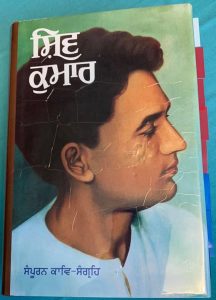
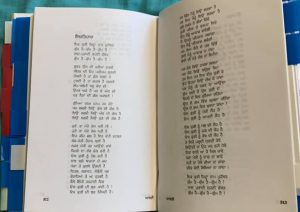
![Weeks_Black-Prism-MM[1]](http://jpsnagi.com/wp-content/uploads/2012/01/Weeks_Black-Prism-MM1-185x300.jpg)
![lbt0101[1]](http://jpsnagi.com/wp-content/uploads/2012/01/lbt01011-300x300.jpg)
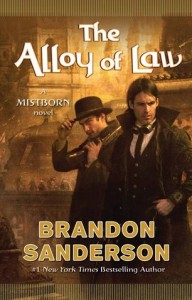
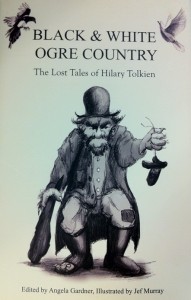
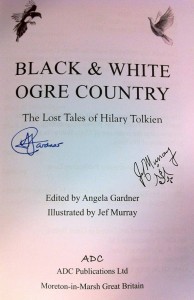
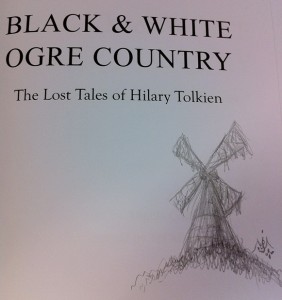
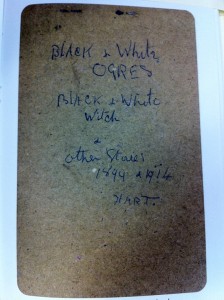
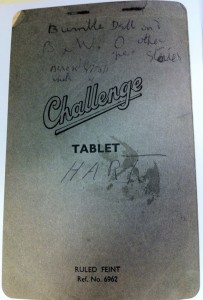
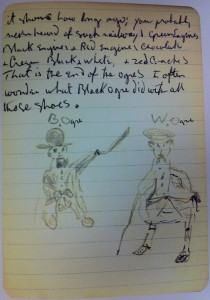
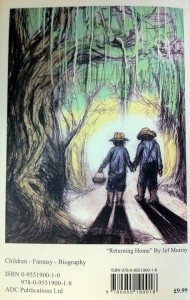
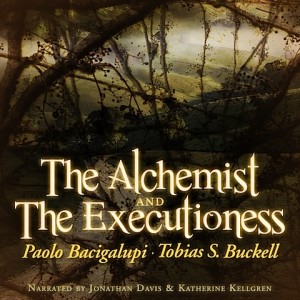
![the-alchemist[1]](http://jpsnagi.com/wp-content/uploads/2011/06/the-alchemist1-204x300.jpg)
![the-executioness[2]](http://jpsnagi.com/wp-content/uploads/2011/06/the-executioness2-204x300.jpg)

